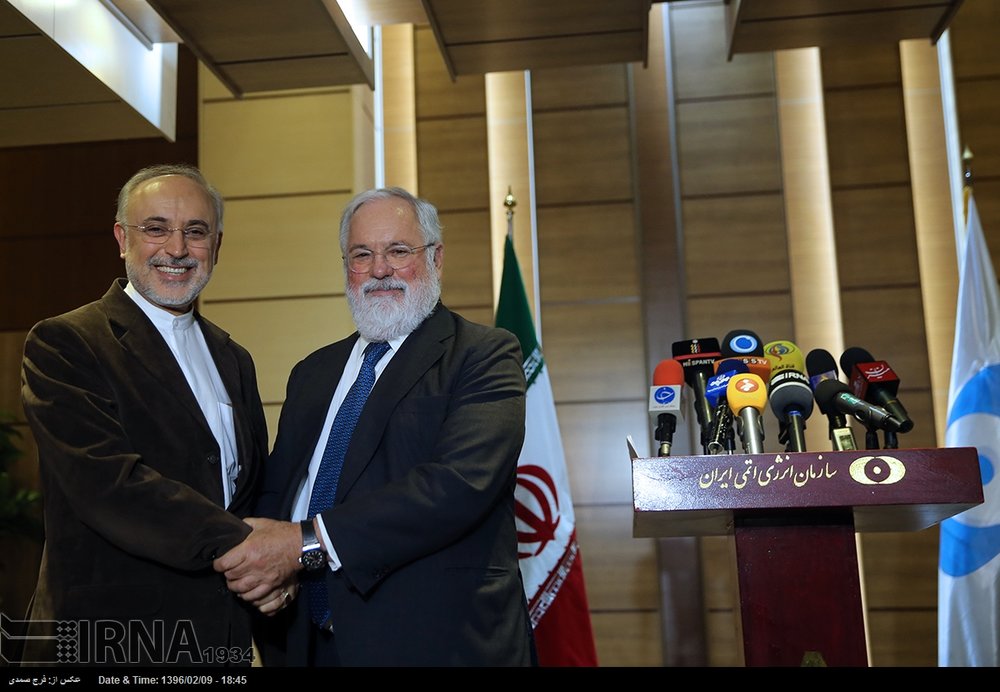Iran says discussing 5-year nuclear cooperation with EU

TEHRAN – Iran and the European Union are discussing a five-year plan for cooperation in peaceful uses of nuclear energy which will be funded by the bloc, Ali Akbar Salehi, Iran’s nuclear chief, said on Saturday.
“We are discussing the five-year plan that needs €20 million,” Salehi said in an appearance in Tehran with visiting European Climate Action and Energy Commissioner Miguel Arias Canete.
“The Europeans are to provide the funding,” Salehi added.
Moreover, the two sides are working on details of a roadmap which, once finalized, will allow for Iran’s collaboration with the European Atomic Energy Community (Euratom) for research and development purposes.
“Details of the cooperation were discussed today,” the nuclear chief noted, what Canete confirmed, as well.
Euratom aims to pursue nuclear research and training activities with an emphasis on continually improving nuclear safety, security and radiation protection, notably to contribute to the long-term decarbonisation of the energy system in a safe, efficient and secure way.
Another cooperation area, Salehi added, for nuclear interaction between Tehran and the EU is the establishment of a nuclear safety center in Iran, which can be of service to the whole region.
Closer ties between Tehran and the European Union come in the wake of the international 2015 nuclear deal with six world powers, Britain, China, Germany, France, Russia and the United States, under which Tehran agreed to curb its nuclear program in reward for relief from economic sanctions.
Under the nuclear accord, otherwise known as the Joint Comprehensive Plan of Action, the six world powers cooperate with Iran appropriately in the field of peaceful uses of nuclear energy and engage in mutually determined civil nuclear cooperation projects.
Last November, Salehi and ITER Director General Bernard Bigot signed a non-closure agreement, which will allow Iran to join the multi-national nuclear fusion project as an associate member.
Iran is already studying the development of nuclear fusion and has smaller laboratory tokamak machines.
However, ITER would give it access to new technologies and help bring it into the international civil nuclear energy fold.
In one of the nuclear deal's annexes the powers, which are all ITER members, said Tehran should be encouraged to cooperate with the project. "The nuclear deal opened the door," Bigot said.
Unlike fission reactors, which produce energy by splitting the nuclei of atoms, ITER would generate power by combining them. It remains unclear whether the technology will work and become commercially viable.
Nuclear energy cooperation also was a key theme of a joint statement by the EU foreign Policy Chief Federica Mogherini and Iran’s Foreign Minister Mohammad Javad Zarif in April 2016.
AK/PA
Leave a Comment